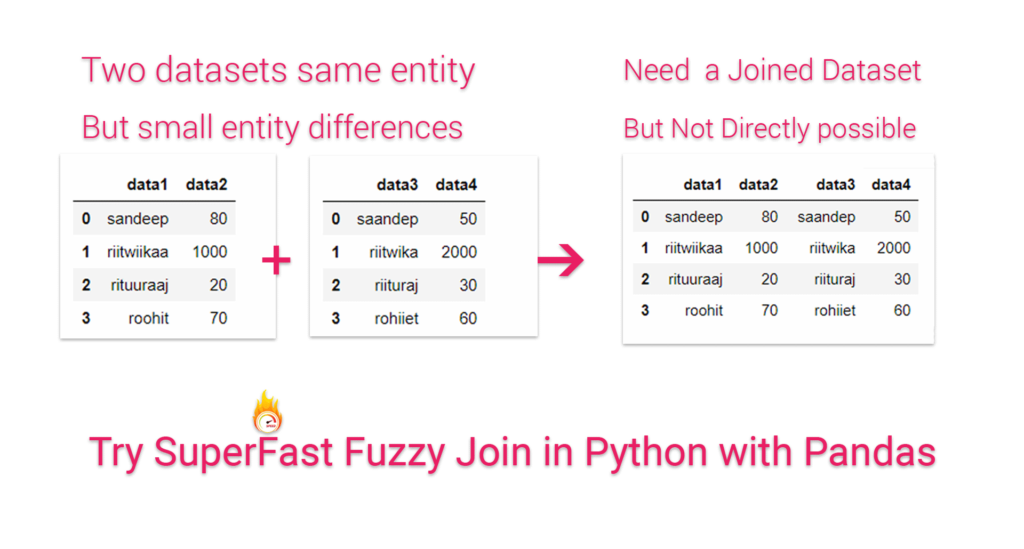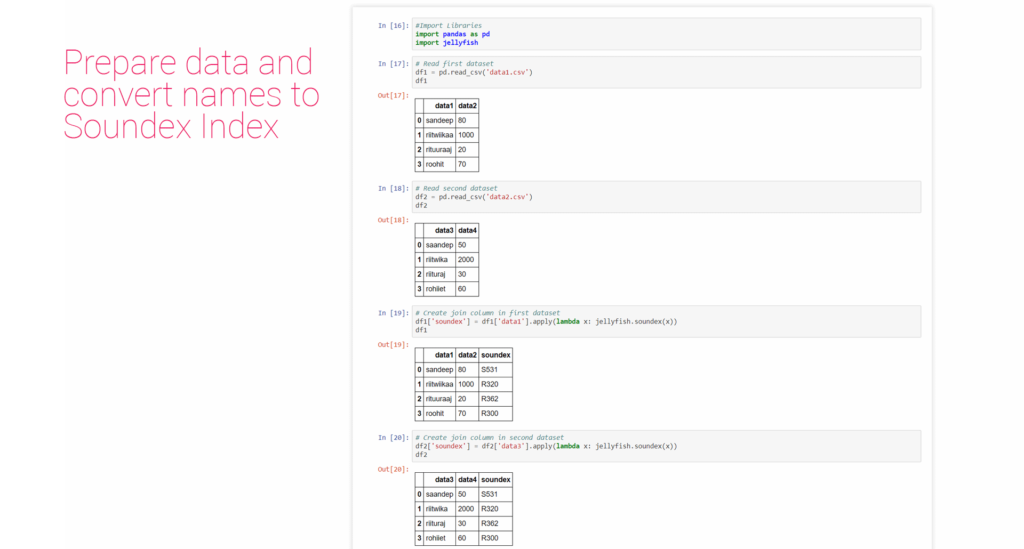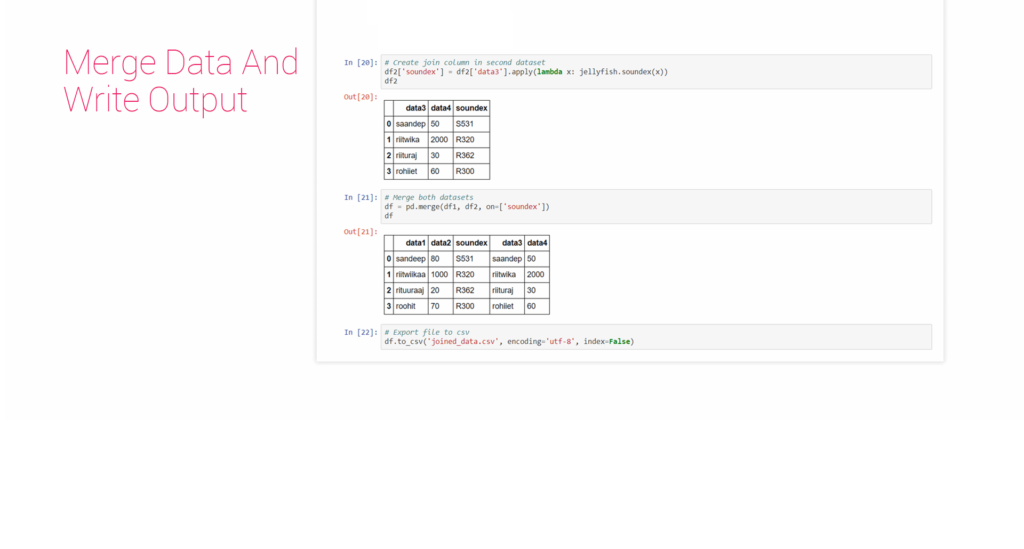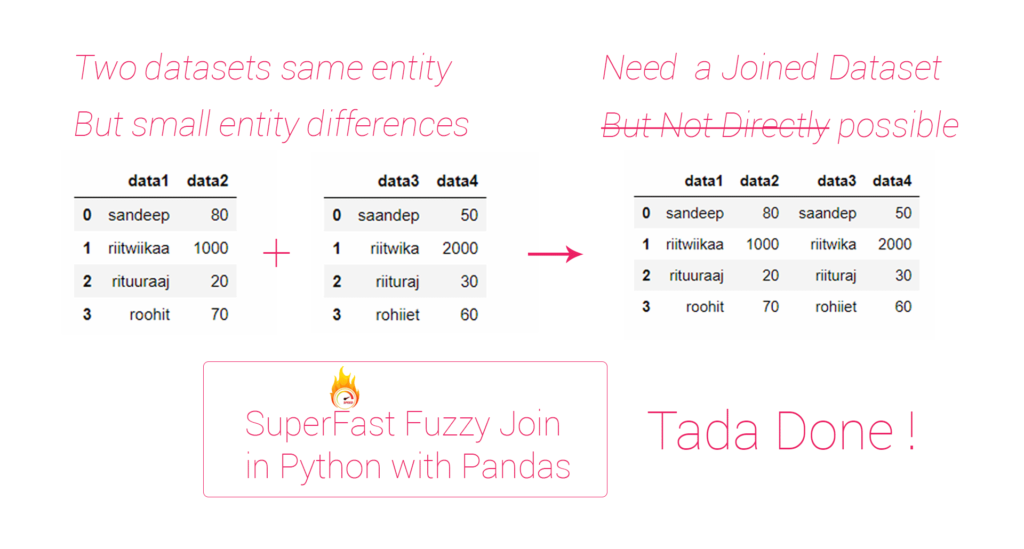Summary – SUPERFAST FUZZY JOIN IN PYTHON USING PANDAS.
Sometimes we have to join two different data set about same entities but variations in entity name, this makes direct join process incapable of handling the joins and results in mismatch. Here fuzzy join is handy as it uses soundex algorithm to convert names to the an index based on how it is pronounced.
Pandas is a library in python used by a lot of data scientists, it handles a lot of heavy load in data manipulation.
Jupyter notebook is a python library that provides us an interface where we can code in bits and pieces and see results, and yes it is a bliss for data scientists.
It is recommended to use Anaconda distribution of python, in this tutorial python 3.6 has been used.
If you want to see how to install python (Anaconda Distribution) and run Jupyter notebook see this tutorial .
Download Code for this tutorial.
Two Steps:
The Problem

DATASCIENCE-1-2018.11.28-SUPERFAST-FUZZY-JOIN-IN-PYTHON-USING-PANDAS-problem
Problem: Sometimes we have to join two different data set about same entities but variations in entity name, this makes direct join process incapable of handling the joins and results in mismatch..
Procedure
Prepare data and convert names to Soundex index

Prepare data and convert names to Soundex index
Import libraries:
#Import Libraries import panda as pd import jellyfish
Read Datasets:
# Read first dataset df1 = pd.read_csv('data1.csv') # Read second dataset df2 = pd.read_csv('data2.csv')
Create Soundex Index to join data:
# Create join column in first dataset df1['soundex'] = df1['data1'].apply(lambda x: jellyfish.soundex(x))
# Create join column in second dataset df2['soundex'] = df2['data3'].apply(lambda x: jellyfish.soundex(x))
Merge data and write output.

Merge data and write output.
Merge data:
# Merge both datasets df = pd.merge(df1, df2, on=['soundex'])
Write output data:
# Export file to csv df.to_csv('joined_data.csv', encoding='utf-8', index=False)
Tadda done!!

Tadda done
if you like the tutorial please spread the word and comment below if you have any questions.

